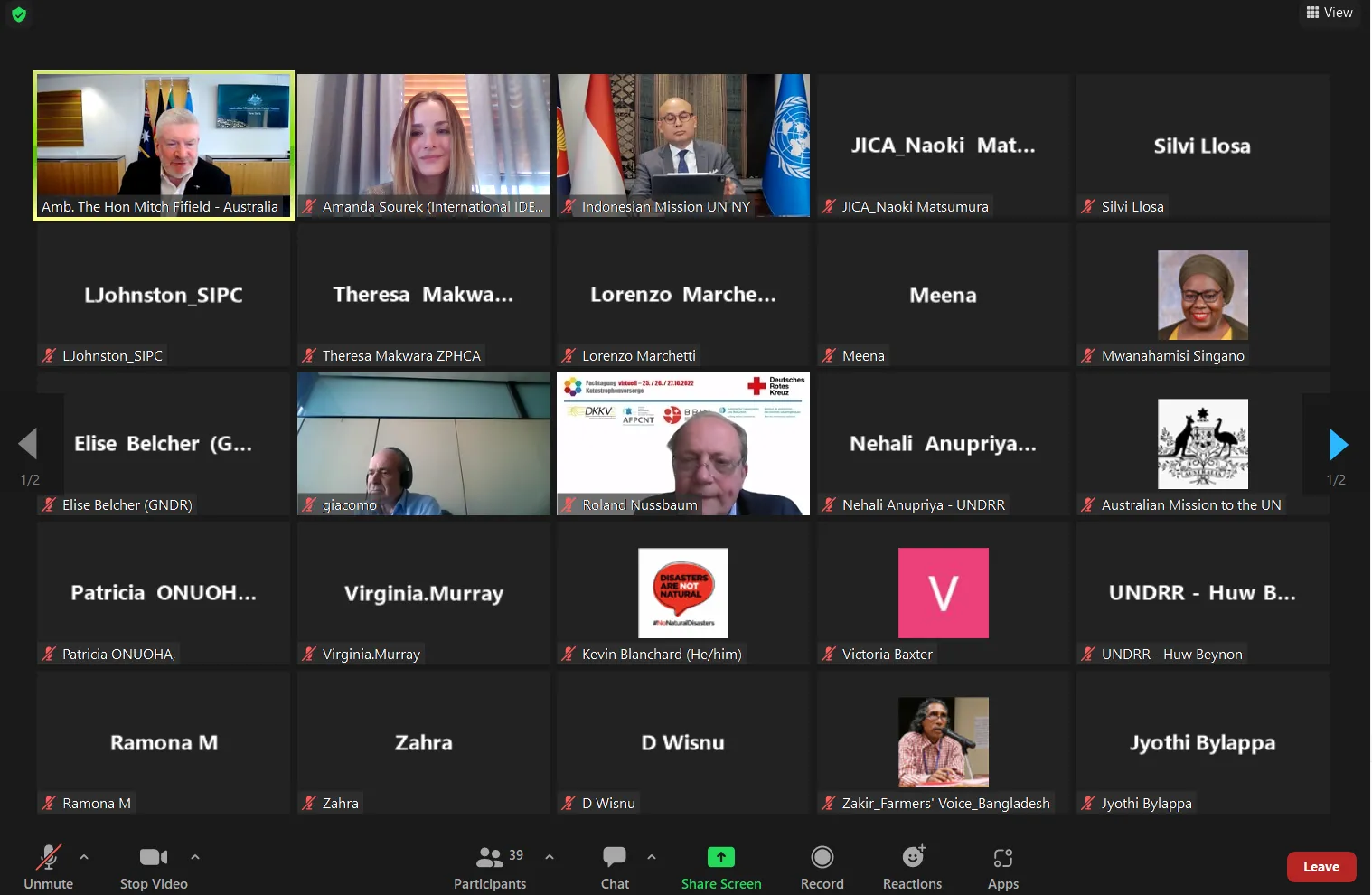Statement by International IDEA at the UN Informal Consultation on the Midterm Review of the Sendai Framework

“Midterm Review of the Sendai Framework”
27 February 2023
New York, United Nations Headquarters
Statement by
Kevin Casas-Zamora
Secretary-General
International Institute for Democracy and Electoral Assistance (IDEA)
Excellencies,
International IDEA is the only intergovernmental organization with an exclusive mandate on building democracy and electoral assistance around the world since 1995. In recent years, we have built a significant body of knowledge and resources on risk management, resilience building, and crisis management in the field of democracy assistance, which we see as relevant inputs into the political declaration on the SENDAI Framework on Disaster Risk Reduction. We thank the co-facilitators of Australia and Indonesia for leading this process and giving us an opportunity to provide inputs.
On the basis of a series of knowledge and data produced by International IDEA, including case studies on Indonesia, Mozambique, Haiti, Australia, and the USA, amongst others, we would like to bring a few points and findings to the attention of this body on the linkages between natural disasters, critical infrastructure, and electoral processes.
According to our multimedia report on the ‘Impact of Natural Hazards on Elections’, election management bodies (EMBs) have always had to cope with natural hazards, but the threat posed by such phenomena has become more apparent in recent years. In recent decades, the number of natural disasters increased from under 300 per year in the 1980s to over 800 per annum in the 2020s. This dramatic development is consistent with the predictions of climate scientists, and it is thus highly likely that elections will more frequently be affected by natural hazards in future years.
The preliminary findings of the case studies produced by International IDEA on this topic, indicate many recommendations relevant to the work of the UN Disaster Risk Reduction, including: 1) the need for EMBs to adopt risk management and contingency planning to reduce election disruption caused by natural hazards; 2) for EMBs to consider the introduction or extension of special voting arrangements (such as early voting and postal voting) which can increase voters’ access to polls, especially in places that are vulnerable to the effects of disasters and severe weather events; and 3) for EMBs to strengthen their inter-agency cooperation with local and state agencies involved in elections and disaster preparedness, prevention and mitigation. Moreover, our analysis shows the critical need for electoral administration and other state agencies involved in elections (such as postal services, and education facilities used as polling stations) to be recognized as part of a state’s critical infrastructure.
These findings and recommendations are crucial points to be taken into consideration for a better implementation of the Sendai Framework for Disaster Risk Reduction and we urge Member states to include these findings in the political declaration, especially when considering the absence of information on how elections get impacted by such risks, including the impact of both natural hazards (such as hurricanes, flooding, earthquakes, wildfires) and disasters on the management of elections in different countries around the world.
International IDEA considers democratic institutions and processes, not least elections, as critical infrastructures whose functioning is deeply affected by disasters; therefore, we recommend that such infrastructures are protected in order to guarantee the delivery of the public goods and services they are designed to ensure.
Thank you.